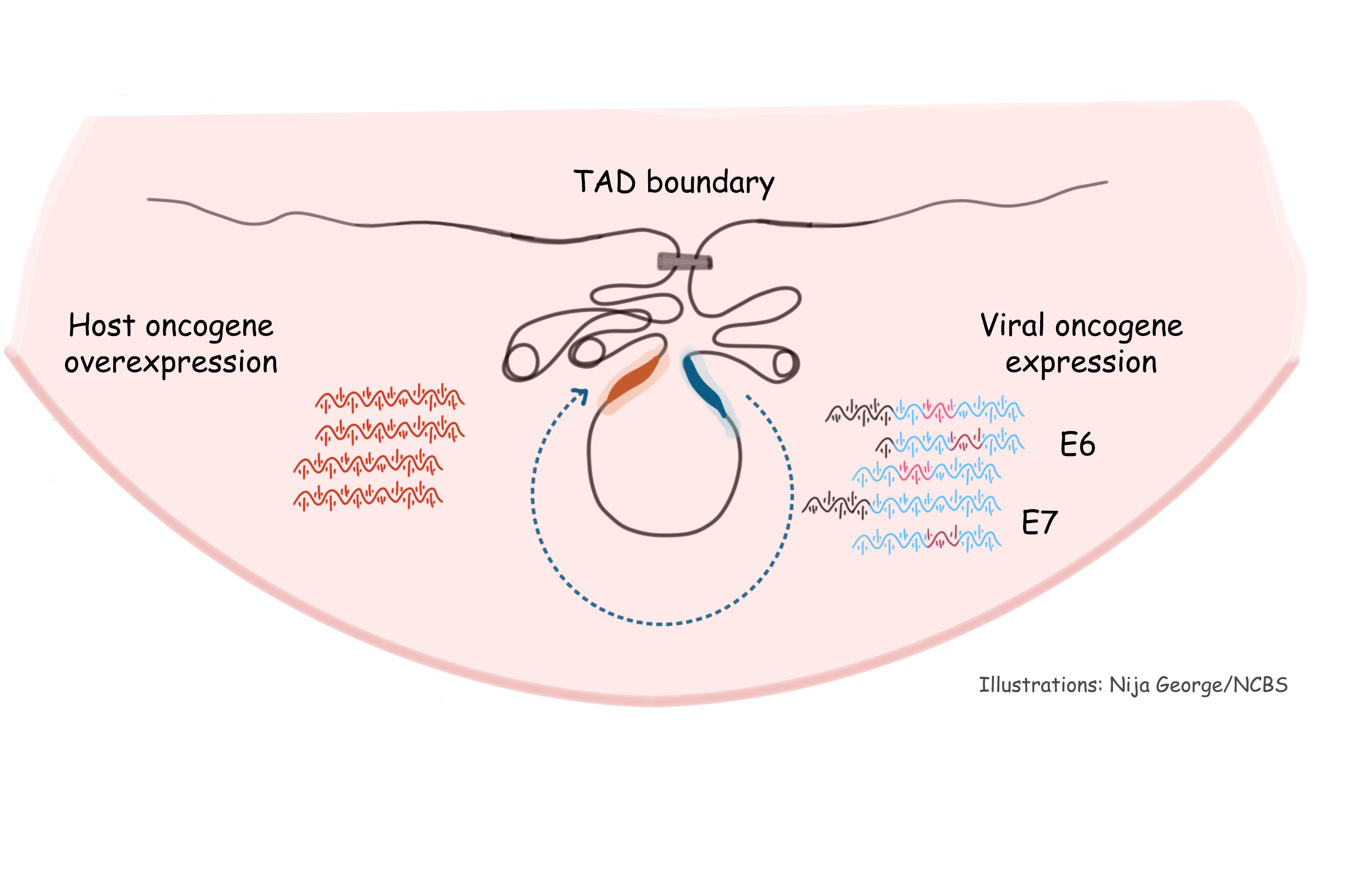Human papillomavirus (HPV) infection is the major causative agent of cervical cancers. HPV is a DNA virus and it infects the basal epithelial cells of the cervix. In most cases, our body’s immune system identifies this foreign entity and clears it off. However, in the case of persistent infection (with high-risk HPV types), the virus may take advantage of the dividing basal epithelial cells to multiply as well as cause cellular changes. Over the course of time, these infected cells may develop into invasive cancer and in most cases, the HPV DNA also gets integrated into the host genome. Radhakrishnan’s lab is interested in understanding how integrated HPV DNA drives cancer progression.

HPV DNA encodes for proteins such as E6 and E7 whose oncogenic role has been studied previously. For example, the E6 protein is known to interact with host p53, leading to p53 degradation and loss of p53-mediated tumour suppressor activity. Whereas, E7 is known to interfere with RB pathway, resulting in increased cancer cell proliferation.

However, the cis-regulatory effect of integrated HPV DNA on the host gene regulation is less understood. In this study, Radhakrishnan’s lab discovered that integrated HPV DNA affects host 3D chromatin structure leading to overexpression of host oncogenes within the same topologically associating domains (TADs).

Anurag Kumar Singh, the first author of this study, says HPV integration can mediate multiple modes of oncogenic activation. This includes consistent overexpression of viral oncogenes as well as host oncogenes. As a result, multiple host cellular pathways get dysregulated, and that favours the cancer cell proliferation.

This study was done in collaboration with Dr Dimple Notani at NCBS, Bengaluru and Dr Giovanni Ciriello at University of Lausanne, Switzerland. Read more about this study here https://doi.org/10.1002/1878-0261.13559 published in Molecular Oncology.
As a future direction, Radhakrishnan's lab is interested in assessing whether the location of HPV integration in the host genome can be used as a biomarker to predict disease progression at an early stage.










0 Comments